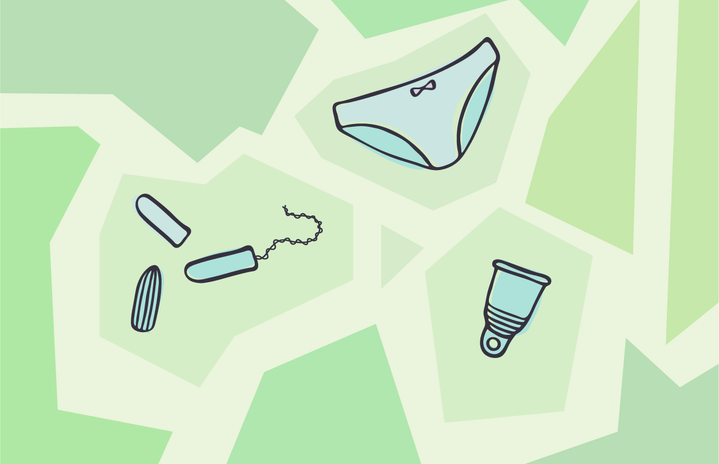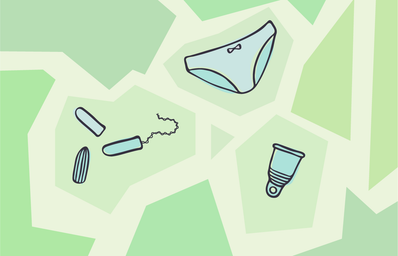You’re in the bathroom and you reach into your purse, thinking you have a tampon in there somewhere. After digging around for a few minutes, you give up and contemplate your options: fold up a lot of toilet paper or rough it with a cardboard tampon. Dun….dun…dunnn… the cardboard tampon. We all know the pain and dread of taking one from the public bathroom, knowing that it’s your last resort.
Those moments make us appreciate the luxury of brand name tampons, but have you ever thought twice about what your period products actually are? I mean other than a semi-suppressive wad of cotton, what’s actually in them? What makes one brand better than another?
I recently made the switch to organic tampons and pads, and I am begging you to make the switch too. I stumbled upon L. organic hygiene products in mid-flow panic at Target. To be entirely honest, I picked them because they had “SUPER” plastered across the front and I was in dire need; however, I have had the time to dive into the genuine benefits of organic tampons, and I will never go back to mainstream hygiene products.
At first glance, the lack of packaging appealed to my environmental-consciousness. As someone who finds it hard to limit my gasoline consumption and water usage, trying to find companies that are eco-friendly has been the easiest way for me to help save our dying planet. Have you ever thought about how much waste our periods produce? First there is the tampon/pad box, then all of the products are individually wrapped, then (unless you’re roughing it with a cardboard tampon) the plastic tampon applicator. Many of these organic tampon brands will limit their plastic waste as well as making the containers reusable with subsequent refill boxes that use recyclable packaging.
If the environmental benefits did not convince you, let’s talk about chemicals. Women’s Voices for the Earth (WVE) did a study in 2018 revealing that various tampon brands contained carcinogens and reproductive toxins. How does this happen? Well, a majority of tampons are fabricated out of rayon, a synthetic cotton substitute, which is manufactured with the help of various chemicals—including a bleaching process to produce that cotton-whiteness. Ultimately, we end up shoving these chemicals up our vaginas. While the long-term health risks are still being studied, Alexandra Scranton, WVE’s Director of Science and Research, explains how “it is unacceptable that there are so many unknowns about the ingredients, safety, and health impacts of products that come into contact with one of the most sensitive and absorbent parts of the body.”
If you need more convincing to truly push you over the edge, I have one more reason you should make the switch: education and donations. Nearly all organic hygiene product companies, like easy and Lola, focus on donation and health education programs all around the world. L. organic hygiene products work on a one for one model: for every L. product purchased, one product is made accessible to someone around the world who needs it.
Organic hygiene products produce less waste, save your body from harmful chemicals, and help other women in need! Next time you’re in mid-flow panic at Target or casually browsing the hygiene product aisle, grab the organic brand and feel better about your purchase while saving your body some trouble—and don’t forget, avoid cardboard at all costs!



